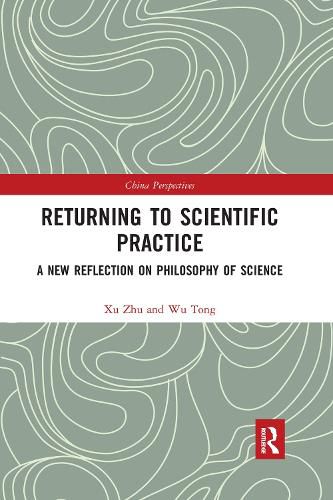Readings Newsletter
Become a Readings Member to make your shopping experience even easier.
Sign in or sign up for free!
You’re not far away from qualifying for FREE standard shipping within Australia
You’ve qualified for FREE standard shipping within Australia
The cart is loading…






This book is a result from a collective study on philosophy of scientific practice (PSP), which began around 2002 and still ongoing. There is an apparently increasing interest in scientific practice, influenced by the historicistic philosophy of science and the sociology of scientific knowledge (SSK). Prof. WU Tong and his research group believe that it is necessary for PSP to turn from the theory-dominant position to the practice dominance. PSP has also put forward the possibility of reinterpreting the epistemic status of local knowledge in Chinese tradition, which provides the most significant motivation to participate this study.
In this book, we have selected three main cases - namely, Chinese medicine, Fengshui, and Ethnobotany - to examine the effect of PSP. The aim of our collective study is not merely on theoretical construction of PSP, but also to consider the various applications of PSP, especially for re-interpreting and demonstrating the variety of local knowledge from traditional China, which seems to be a genuine contribution to the international enterprise of philosophy of science, particularly made by Chinese scholars.
$9.00 standard shipping within Australia
FREE standard shipping within Australia for orders over $100.00
Express & International shipping calculated at checkout
This book is a result from a collective study on philosophy of scientific practice (PSP), which began around 2002 and still ongoing. There is an apparently increasing interest in scientific practice, influenced by the historicistic philosophy of science and the sociology of scientific knowledge (SSK). Prof. WU Tong and his research group believe that it is necessary for PSP to turn from the theory-dominant position to the practice dominance. PSP has also put forward the possibility of reinterpreting the epistemic status of local knowledge in Chinese tradition, which provides the most significant motivation to participate this study.
In this book, we have selected three main cases - namely, Chinese medicine, Fengshui, and Ethnobotany - to examine the effect of PSP. The aim of our collective study is not merely on theoretical construction of PSP, but also to consider the various applications of PSP, especially for re-interpreting and demonstrating the variety of local knowledge from traditional China, which seems to be a genuine contribution to the international enterprise of philosophy of science, particularly made by Chinese scholars.